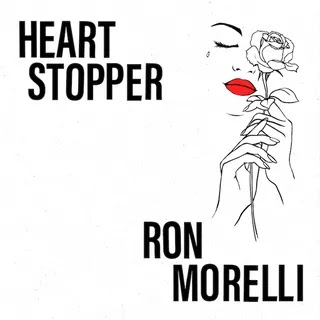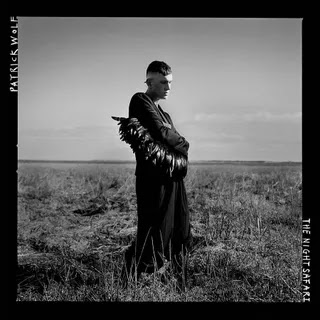Connecting disparate styles, eras, and moods, the London DJ’s mix tells a story of black dance music from both sides of the Atlantic, an ongoing dialogue that transcends genres and borders.
Dance music is steeped in mythology. The U.S. has Chicago, Detroit, Frankie Knuckles, the Belleville Three, Ron Hardy, Larry Heard, and countless tales of young artists—many of them black, brown, and/or queer—cooking up house, techno, electro, and other genres that would go on to transform dancefloors around the globe. Over in the UK, there’s a similar reverence for the country’s so-called “hardcore continuum,” which has roots in imported Caribbean soundsystem culture and runs through hardcore, jungle, drum’n’bass, garage, grime, dubstep, and a myriad of other low-end-heavy dancefloor sounds.
There are innumerable points of overlap between these two spheres, and the exchange has gone both ways. In 1988, early house music from the U.S. helped inspire UK rave culture and the country’s Second Summer of Love. Twenty-five years later, Chicago producer DJ Rashad reinvigorated the distinctly American sound of footwork by injecting it with UK jungle rhythms. There’s an ongoing dialogue, particularly among black artists, yet U.S. and UK dance music are often portrayed as completely separate worlds, parallel entities rather than two pieces of a larger conversation.
Perhaps Josey Rebelle can help change the narrative. A North London native with Caribbean roots, she started DJing at age 13, became a hardcore and jungle fanatic before she’d even finished high school, and is now arguably best known for her work on seminal radio station Rinse FM, where she’s been on the air since 2011. In many ways, her biography is quintessentially British, but her artistic vision extends well beyond the borders of the UK.
Josey in Space is Rebelle’s first official mix album—and only the second installment of the Beats in Space-curated mix series, following last year’s excellent Powder in Space—and it arrives just months after she was awarded BBC Radio 1’s Essential Mix of the Year and subsequently landed on the cover of DJ Mag. DJing is her calling card—Rebelle doesn’t produce—and she’s developed a reputation as an eclectic, highly knowledgeable selector who’s just as comfortable playing moody jazz, blues, and soul as she is dropping blistering acid and thundering drum’n’ bass. Although she reins that in slightly on Josey in Space, the mix is a far cry from the rigid genre exercises that many official mix series tend to offer.
It’s telling that so much of the Josey in Space tracklist is populated by black artists, British and American alike. Midwestern house veterans like Andrés, Hieroglyphic Being, and Reggie Dokes sit alongside UK bass upstarts Loraine James and Afrodeutsche. Rebelle may not be an overtly political artist—having grown up in a community whose relationships with police and authority were fraught and full of mistrust, she describes herself as “political by default”—but this mix is very much rooted in notions of blackness, a point that’s underscored by early selection “I Dream So Loud,” in which Bay Area poets Tenesha the Wordsmith and Daniel B. Summerhill riff on social justice and identity while referencing Malcolm X, Medgar Evers, and a litany of horrors that have been visited upon black Americans over the years.
From there, Rebelle lets the music do the talking. The bubbling acid of Fotomachine’s “BBoy”—one of a handful of new tracks exclusive to Josey in Space—kicks off an extended excursion through a variety of drum-machine workouts, including a couple of siren-filled hardcore screamers from 1991. Along the way are grotty stormers, wiggly house cuts, and deep house strutters (like Nwachukwu’s remix of Uschi Classen’s “Open Your Eyes,” a clear standout that features the iconic voice of Chicago house legend Robert Owens).
Josey in Space runs nearly 72 minutes, and though the energy level peaks around the 40-minute mark with Rum & Black’s bonkers “Zombies at Dawn,” it’s during the mix’s final half hour that Rebelle flexes the breadth of her repertoire. Seamlessly moving between genres, moods, and eras, she weaves together catwalk-ready sass, dubby broken beat, swirly Afro-Latin rhythms, Balearic bliss, soulful drum’n’bass, and heads-down hip-hop. On paper, that sort of journey sounds like a jarring, confusing mess, but in Rebelle’s hands, it’s a gloriously winding road, a soul-drenched comedown after a wild bit of raving.
As a DJ, Rebelle is a storyteller, and while Josey in Space is certainly good for a dance, it goes significantly deeper than the average mix. It’s a story of black excellence and black struggle, of endless creativity and innovation in the face of systemic and societal aggression and discrimination. That story transcends borders, and is also responsible for revolutionizing dance music in the U.S., UK, and beyond. It’s a different sort of dance music mythology, and with artists like Rebelle at the helm, a better and more accurate one.
👉👇You May Also Like👇👌
View the original article here









%20Music%20Album%20Reviews.webp)






0 comments:
Post a Comment